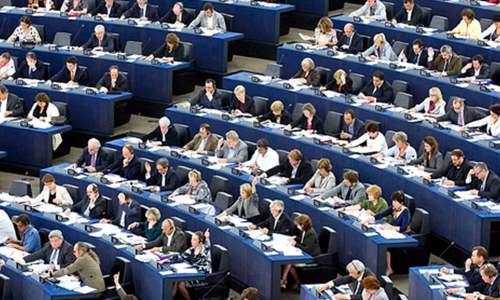
Election 2014: Who will we send to the European Parliament?
The common perception is that general public have little interest in the European Parliament and less still in the elections ahead of us on May 22nd. As Boris Johnson put it in :
Let me ask you a question. No peeking at the internet; no conferring. Can you tell me the name of your Euro-MP? OK, I thought not. Can you tell me what he or she does?
This characterisation, while understandable, is perhaps a little unfair. Granted, most people could tell which blonde mass of charisma currently runs the city of London, but research published by the Hansard Society last year suggested only 22 per cent of voters could tell you the name of their local MP. So public indifference and ignorance is a trait not confined to one election but common to them all.
Public ignorance aside, the 2014 European elections will be the most important in the EU to date. Across Europe it will be the first opportunity for EU citizens to give a verdict on the grand European project to battle the collapsing Eurozone. The next European Parliament will also “elect” the next commission president.
Domestically, with discontent among ministers over the EU rumbling on after recent rebellions, Nigel Farage has also promised to cause a political earthquake, boasting that a UKIP victory could be on the cards.
The most , placing them in the lead at 38%, with on Labour 27%, the Conservatives on 18% and Lib Dems at around 10% with the Green Party challenging for 4th place. Regionally, the polls vary and are less reliable, but they indicate a similar showing to the national polls, namely that UKIP will perform well.
If we broadly accept the polls as a reflection of the result, how will that affect the delegation of MEPs sent to represent the West Midlands at the European Parliament?
The West Midlands currently returns seven MEPs to the European Parliament, increased from six as a result of the Lisbon Treaty in 2011. Each party puts forward a list of candidates known as a regional list and the public vote for one of these lists or for an individual candidate standing as an independent. The number of MEPs that are elected from each party to represent a region depends on the overall share of votes that each party receives.
Due to the nature of the European election PR procedure only the top two candidates, at most three, stand any viable chance of election to the European Parliament in the West Midlands. In 2009 the Midlands returned two Conservative MEPs, two UKIP, one Labour and one Liberal Democrat, with the Conservatives receiving an extra MEP after 2011 Lisbon Treaty changes.
However, if UKIP convert their current polling position into real votes on May 22nd 2014, the Chamberlain News predicts we will see three UKIP MEPs returned, two Labour, one Conservative and one Liberal Democrat.
Across the next few weeks, Chamberlain News will focus on each Party’s prospects and look at the candidates chosen to head the regional list, those likely to be elected, so that readers can see who is likely to represent us in Europe. First up will be UKIP.
Stay tuned.
Similar Articles
PM: gave unlawful advice; frustrated Parliament
"Scenes." As young people would say, writes Kevin Johnson. "Unlawful." "Unequivocal." "Historical." These words are not,
WMCA: Nothing to see here…move along
As the Prime Minister prepared to address leaders ‘up North’ gathering for the Convention of
HS2: new driver needed
Is the Oakervee Review "welcome", "frustrating" or the end of the line for HS2, asks
Dawn goes Down Under
It might appear that Birmingham city council changes its chief executives more regularly than its
Hezza: Give Metro Mayors greater powers to deliver housing, skills and jobs
Britain’s metro mayors should be given greater powers over housing, schools and jobs to truly










